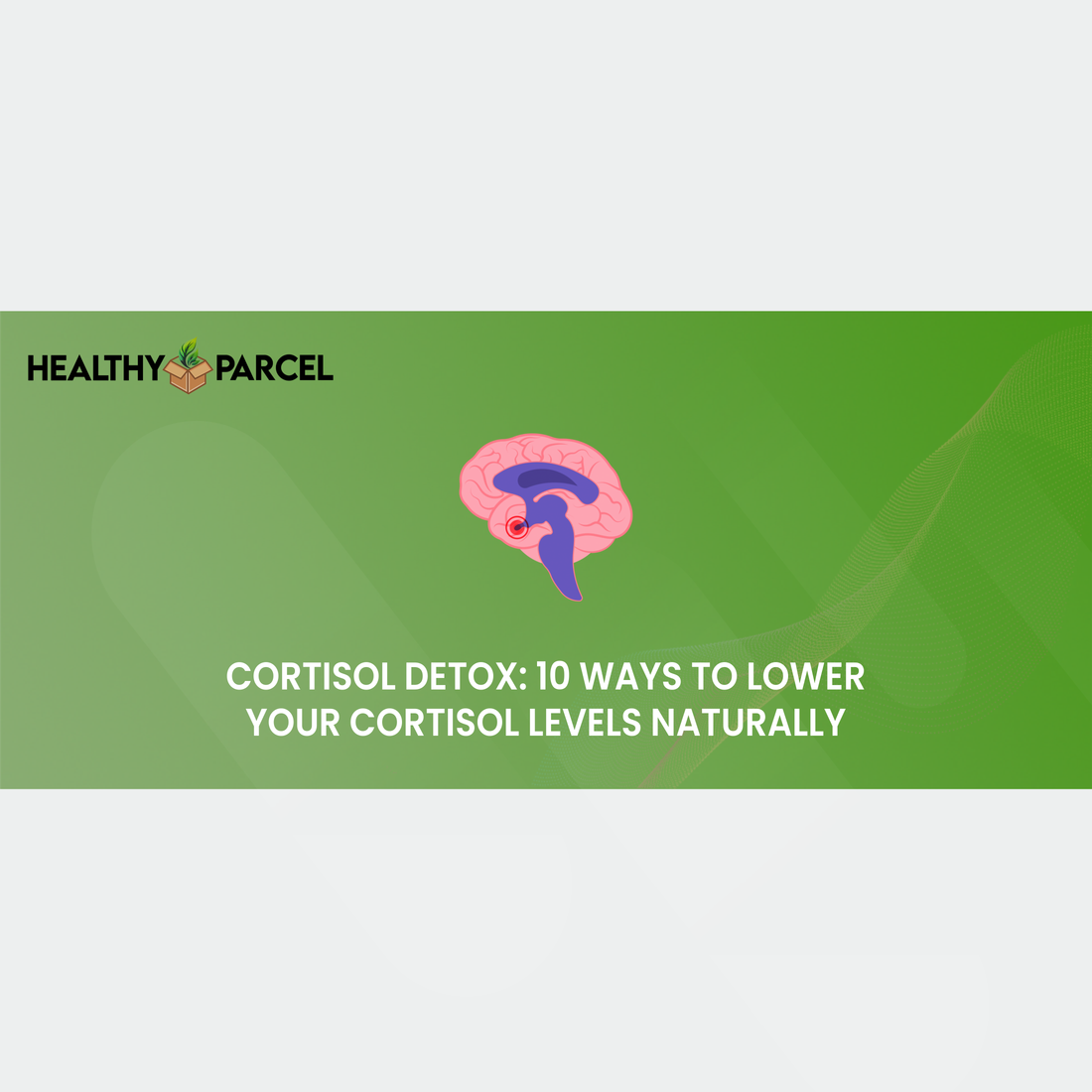When we're stressed, our adrenal glands release cortisol. In small doses, this hormone helps us handle stressful situations. But if cortisol stays high for too long, it can be harmful.
Reducing stress is often the most straightforward way to lower cortisol. Less stress usually means the body produces less cortisol.
Sometimes, though, high cortisol stems from an underlying medical condition or medication side effects. A doctor can provide guidance in these cases.
This article explores practical methods for lowering cortisol levels to help our bodies manage stress more effectively.
What is cortisol and what do high levels feel like?

Cortisol is the body’s main stress hormone, playing a crucial role in several bodily functions, including:
- Regulating blood sugar levels
- Managing sleep-wake cycles
- Controlling how the body uses carbohydrates, fats, and proteins
- Reducing inflammation
- Maintaining blood pressure
When we face potential danger, the body ramps up cortisol production as part of the "fight, flight, or freeze" response, helping us adapt to the threat.
High cortisol levels put the body on high alert, making us feel tense or "on edge." This heightened state can interfere with concentration and sleep.
Chronic stress, certain medical conditions, or some medications can cause cortisol levels to become unusually high.
What health conditions can high cortisol levels cause?

Prolonged high cortisol levels can lead to:
- Reduced sex drive
- Irregular or absent menstruation in females
- Mental health issues like anxiety and depression
- A weakened immune system
- Cushing’s syndrome, which can result in:
- High blood pressure
- A flushed face
- Fat deposits between the shoulder blades
- Muscle weakness
- Increased thirst and frequent urination
- Mood swings
- Weight gain, especially in the face and abdomen
- Osteoporosis
- Bruises or purple stretch marks on the skin
- Increased body hair in females
- Type 2 diabetes
Natural Ways to Lower Cortisol
Normally, the brain and adrenal glands regulate cortisol levels. Once the stress passes, cortisol production stops, and levels return to normal.
However, those experiencing chronic stress, certain medical conditions, or taking specific medications may have persistently high cortisol levels. They might benefit from techniques to lower cortisol, such as:
Lowering Stress

Stress triggers cortisol production, so reducing stress can help lower cortisol levels. Here are some ways to do that:
Setting Priorities:
- To manage stress, identify and avoid stressors when possible. Evaluate what causes stress and determine if it's avoidable or unavoidable. For avoidable stressors, decide if they are priorities. If not, consider eliminating them.
Stress Management:
- Learn to cope better with unavoidable stress through techniques like mindfulness and self-help strategies.
Mental Health Care:
- If stress stems from a mental health condition like anxiety, seeking treatment can help. A therapist can assist in identifying and reframing anxious thoughts.
Try Relaxation Techniques

Engaging in relaxation techniques can counter the stress response, helping the body stop producing stress hormones. Some effective techniques include:
- Breathing exercises
- Guided meditation
- Walking meditation
- Yoga or tai chi
- Visualization
Eat a Balanced Diet

Maintaining a balanced diet can help regulate cortisol levels. Pay attention to sugar and caffeine intake. According to a 2021 article, these dietary changes can help reduce stress and stabilize cortisol levels:
- Dietary fibers: Include vegetables, fruits, beans, nuts, lentils, seeds, and whole grains.
- Omega-3 fatty acids: Eat more fish and seafood, or plant-based options like flax seeds, chia seeds, algae, and sea vegetables.
- Aged, fermented, and cultured foods: Incorporate plain yogurt, kefir, kombucha, miso, tempeh, and apple-cider vinegar.
A 2019 study found that increasing dietary carbohydrate intake might lower cortisol levels.
Avoid Caffeine

To lower cortisol, avoid caffeine in the evening, as it can disrupt sleep.
Get Enough Sleep

Poor sleep or sleep deprivation can increase cortisol levels. Ensure adequate sleep and maintain a regular sleep schedule to help reduce cortisol.
Maintain a Good Bedtime Routine
A consistent bedtime routine can improve sleep quality and duration, helping to lower cortisol levels. Consider relaxing activities such as:
- Bathing or showering
- Stretching
- Reading a book or listening to an audiobook
- Journaling
- Meditating
Turn off screens and remove distractions before bed to enhance relaxation and sleep quality.
Take a Hobby

Engaging in hobbies can be both relaxing and fulfilling, helping to take your mind off stressors and giving you something positive to focus on.
For instance, an older pilot study on substance misuse treatments found that gardening reduced cortisol levels among veterans and improved their quality of life more than conventional occupational therapy.
Other stress-relieving hobbies include:
- Drawing or painting
- Crafting
- Cooking
- Creative writing
- Playing a musical instrument
Have Fun

It’s hard to feel stressed while having fun, so making time for enjoyable activities can help lower cortisol levels. Laughter offers therapeutic benefits, such as reducing cortisol and increasing serotonin, which helps regulate mood. It can also enhance social relationships.
Exercise

Physical activity is beneficial for overall health and can improve mood. However, intense exercise can increase cortisol levels as the body responds to the stress of the activity. For those with high cortisol, low- or moderate-impact exercise might be more suitable. The best type and amount of exercise vary for each person, so consulting a doctor is recommended.
Good Relationships

Stable, loving relationships with partners, friends, and family are crucial for a happy and fulfilling life and can help you navigate stressful times. Unhappy and unhealthy relationships, however, can cause significant stress. Regular conflicts can affect well-being, so resolving issues can benefit everyone involved.
Conclusion
Managing cortisol levels is essential for overall well-being, especially in our stress-filled lives. By adopting strategies such as reducing stress, practicing relaxation techniques, maintaining a balanced diet, avoiding caffeine, ensuring adequate sleep, engaging in hobbies, having fun, exercising appropriately, and fostering healthy relationships, we can effectively lower cortisol levels. These practices not only help manage stress but also contribute to a healthier, more balanced life.

